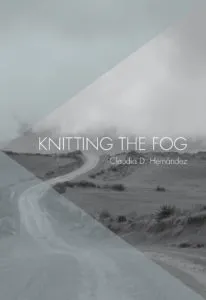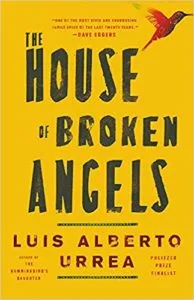
3 #OwnVoices Books About Immigrants
This content contains affiliate links. When you buy through these links, we may earn an affiliate commission.
A Scandal in Book-Landia
The renewed interest in books about undocumented immigrants and their experiences compels me to recommend a few title that grapple with these stories directly and personally. Looking at the controversy surrounding American Dirt by Jeanine Cummins, it becomes more obviously important to understand the necessity of #OwnVoices in a time when there are so many stories of undocumented families by people who have had that particular experience. Here on Book Riot, we’ve discussed the implications of this being an Oprah book club pick. Much has been made of Cummins’s author note about how she wished someone “slightly browner” than she had written the book. I think this note and the controversy have invited a lot of book lovers and readers to think more deeply about the literature they consume. I highly suggest listening to the episode of Latino USA, which digs into the issues around the book with multiple authors. The following three suggestions are a small slice of a very rich tradition of authors writing about the immigrant experience, and I hope they inspire us all to seek out more.Writing From Their Own Perspective
 Someone like Me by Julissa Arce
Someone like Me by Julissa Arce
Written for a young adult audience, Julissa Acre’s memoir tells the truly amazing story of her youth with her grandparents in Taxco, Mexico, to the VP status she currently holds at Goldman Sachs. Arce beautifully elucidates the specific nature of her family, and what it means to grow up the way she did. Her story is compulsively readable, and inspirational not just because of her success, but the way she tells it. She explains her process with clarity and verve—she wants us to know that she become who she was because of her determination, and everyone should have the opportunities she did.
 Knitting the Fog by Claudia D. Hernandez
Knitting the Fog by Claudia D. Hernandez
This genre-breaking book tells the story of Hernandez’s family with prose and bilingual poetry. We follow the family through the intensely uncomfortable experience of border-crossing, from riding on crowded, unsafe buses to attempting to assimilate to a strange new land. Claudia has trouble fitting in among both immigrants and citizens, and when she returns to Guatemala, she fills similarly displaced. This is a beautiful work that leaves us with no easy answers about the pain of leaving and the pain of returning. It’s also a wonderful book for getting more into reading poetry, since it’s weaved in so perfectly.
 The House of Broken Angels by Luis Alberto Urrea
The House of Broken Angels by Luis Alberto Urrea
In this pitch perfect story of family and loss, Urrea pulls his readers into the home of the De La Cruzes and makes you never want to leave. The interpersonal drama and conflict inherent to a family gathering are all present, but at the same time the family are together to celebrate the joy of a life well lived by Miguel. Both raucous party and solemn funeral, the weekend the family spends together thrives in contradiction. They indulge in storytelling and possible exaggeration with great affection, enhancing the inner life of each character in the book through their practices of remembrance and reaction to the tales. It is one of the finest family novels ever written, and should go down in history as one of the Great American Novels (whatever it is that should mean).
As long as the world of published authors is still so overwhelmingly white, and as long as there are still racist laws and ordinances going into effect that restrict the freedoms of immigrants, we need to read stories written by the people intimately familiar with these experiences. It is a way to build empathy and understanding, as opposed to just passive recognition. If you’re looking for more, there are wonderful YA books about immigration, and books about immigrants and their experiences more generally.







